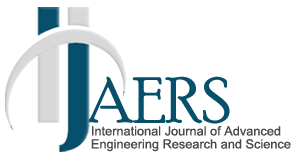Learning Strategies in a Municipal Public Health Organizational Environment |
| ( Vol-5,Issue-8,August 2018 ) OPEN ACCESS |
| Author(s): |
Maria Rafaella Roysal Fontenelle, Wander Pereira de Souza, Flávio de São Pedro Filho, Leonardo Severo da Luz Neto,Irene Yoko Taguchi Sakuno, Eloisa Alves Pinto |
| Keywords: |
|
Administration. Learning. Efficiency. Strategies. Public administration. |
| Abstract: |
|
This study focuses on learning strategies in municipal public health administration of the environment in the Municipality of Porto Velho, Brazil. Ali bureaucracy focuses on the predictability of institutional operations, to enable the achievement of efficiency and organizational efficiency. The question to be answered is: What learning strategies fit into this scenario for improving the service offered? The general objective is to analyze the learning strategies in the body of a Municipal Health work environment to verify their existence and use. The task here is based on Piaget's Theory of creativity, and the concepts of other authors committed to organizational learning. This research was characterized as descriptive, with quantitative approach, basic in nature, Case Study prepared by Method. The sample consisted of 52 servers in crowded health body searched; We used a questionnaire to collect data. It was proved the internal consistency by Cronbach's alpha coefficient. The research concluded that the Extrinsic reflection, Interpersonal Help Search, and Help Search for Material Written, relate significantly with demographic variables: gender, age and income. It also concludes that the servants are in the majority, use these strategies for the implementation of work. This document concerns the public managers committed to the efficiency of their results from learning your team. We used a questionnaire to collect data. It was proved the internal consistency by Cronbach's alpha coefficient. The research concluded that the Extrinsic reflection, Interpersonal Help Search, and Help Search for Material Written, relate significantly with demographic variables: gender, age and income. It also concludes that the servants are in the majority, use these strategies for the implementation of work. This document concerns the public managers committed to the efficiency of their results from learning your team. We used a questionnaire to collect data. It was proved the internal consistency by Cronbach's alpha coefficient. The research concluded that the Extrinsic reflection, Interpersonal Help Search, and Help Search for Written Material, relate significantly with demographic variables: gender, age and income. It also concludes that the servants are in the majority, use these strategies for the implementation of work. This document concerns the public managers committed to the efficiency of their results from learning your team. age and income. It also concludes that the servants are in the majority, use these strategies for the implementation of work. This document concerns the public managers committed to the efficiency of their results from learning your team. age and income. It also concludes that the servants are in the majority, use these strategies for the implementation of work. This document concerns the public managers committed to the efficiency of their results from learning your team. |
|
|
| Paper Statistics: |
| Cite this Article: |
| Click here to get all Styles of Citation using DOI of the article. |
- Track Your Paper
- editor.ijaers@gmail.com
- ISSN : 2349-6495(P) | 2456-1908(O)



Advanced Engineering Research and Science